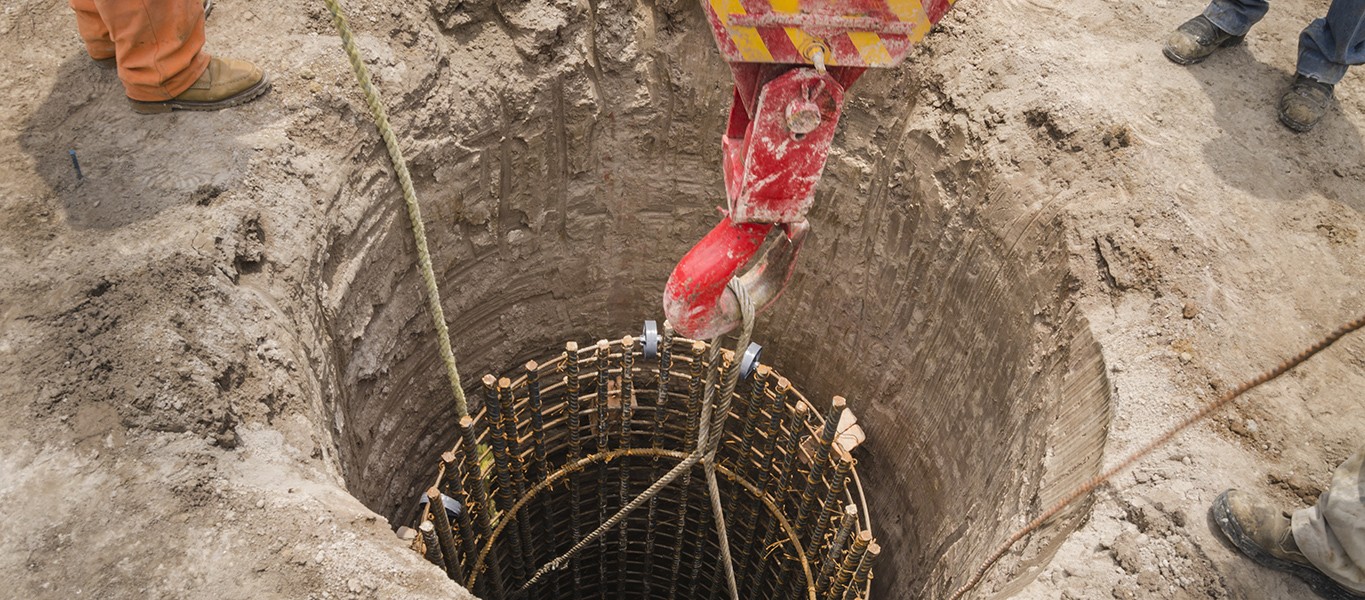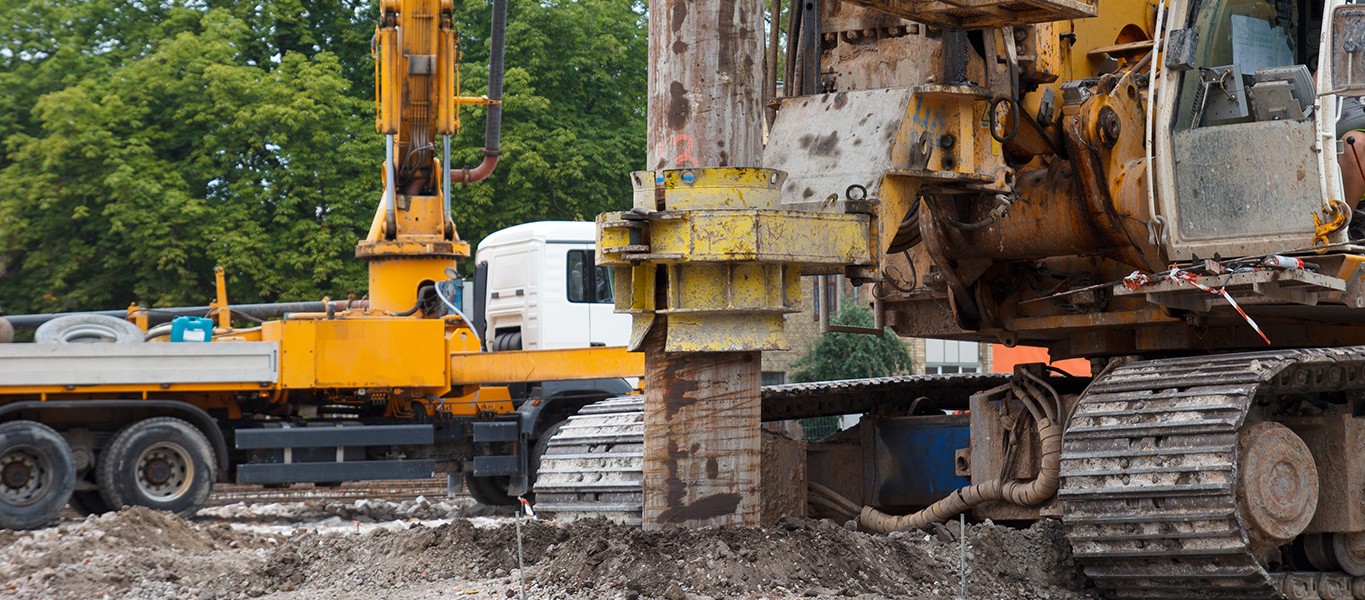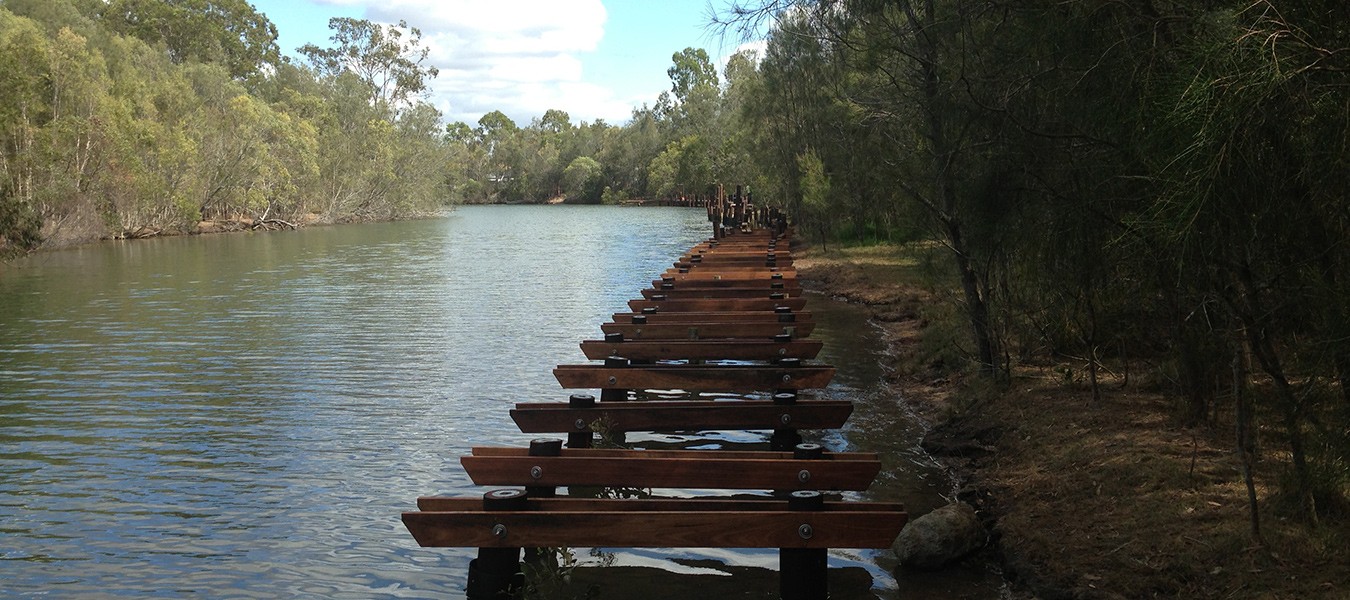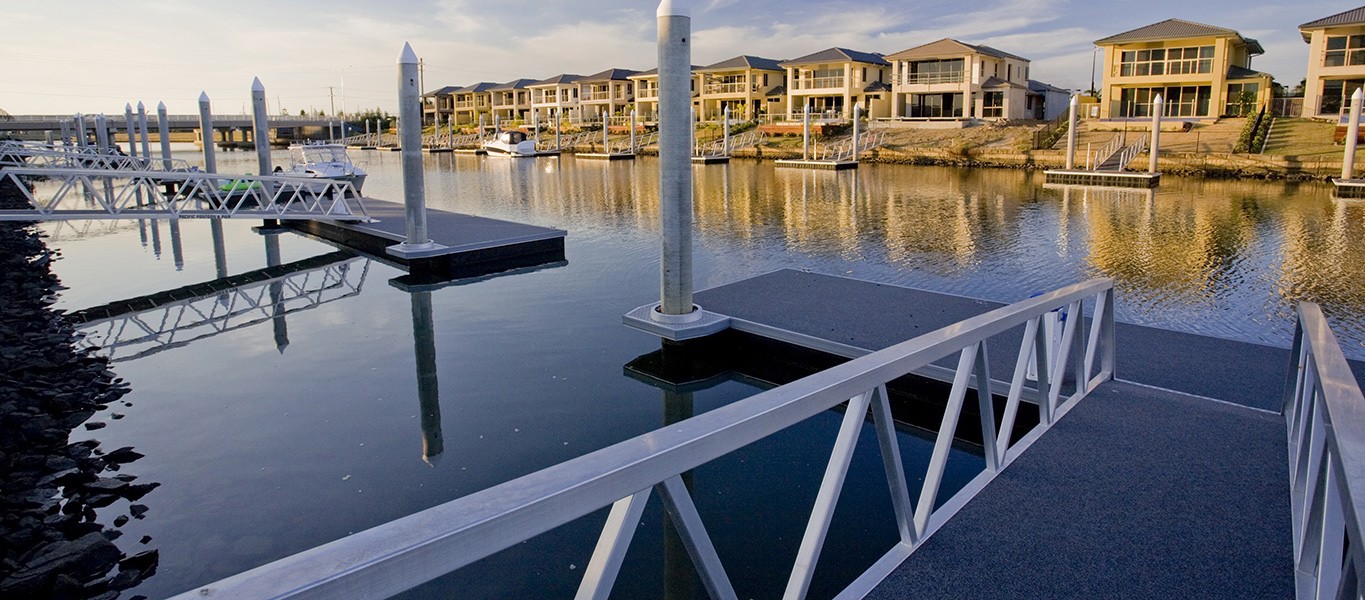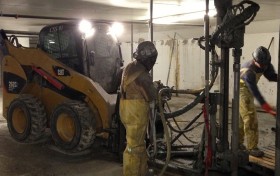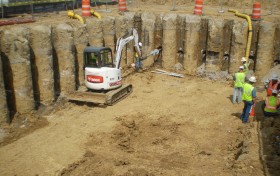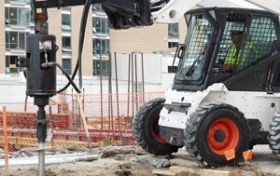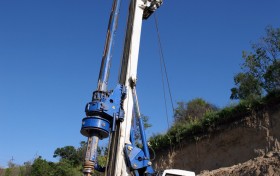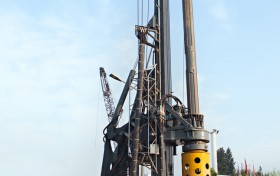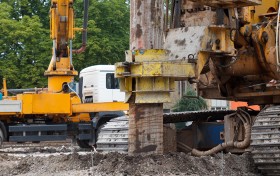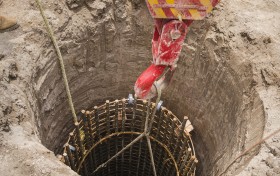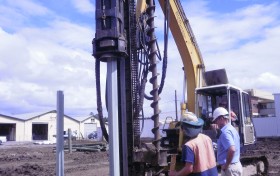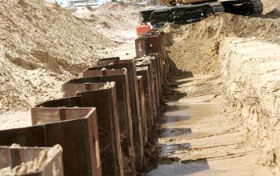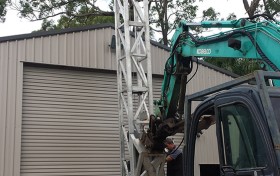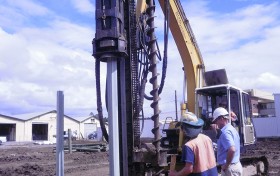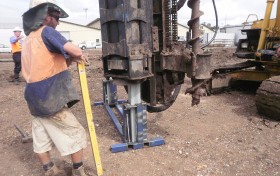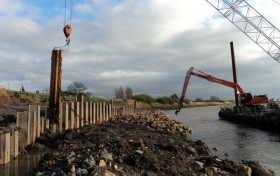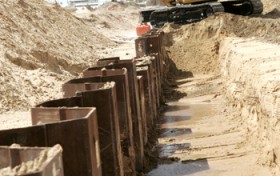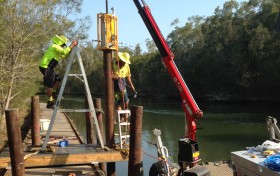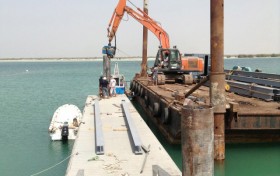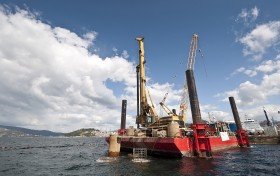Foundations are a very critical element of any structural project where poor bearing soils are present, Envirostruct Services offer a variety of foundation options to meet project design and construction requirements. Envirostruct Services has extensive experience in the design and construction of foundation systems for small and large projects. We can offer obligation free practical design advice and cost estimates at the conceptual stage of your project to assist with project planning.
Micro Piles
Micro Piles are small diameter, reinforced piles capable of supporting design loads in excess of 200 tons. Micro Piles can be installed through almost any type of subsurface condition from sands to clay to boulder soils to rock. Micro piling is installed using low vibratory drilling techniques, a critical consideration when working around sensitive structures. The Micro Piles can be readily installed in confined space and low headroom situations.
Helical Piles (Screw Piers)
Helical piles are a factory-manufactured steel foundation system consisting of a central shaft with one or more helix-shaped bearing plates and a bracket that allows attachment to a structure. The helix plates are commonly referred to as blades or flights and are welded to the lead section.
Extension shafts, with or without additional helix plates, are used to extend the pile to competent load bearing soil and to achieve design depth and capacity. Brackets are used at the tops of the piles for attachment to structures, either for new construction or retrofit applications. Helical piles are advanced (screwed) into the ground with the application of torque.
High capacity deep foundation alternative
All-weather installation
Installed in areas of limited or tight access – Helical piles can be installed with hand-held equipment, mini-excavators, skid steers, backhoes and larger track equipment. The equipment and drive heads can be sized according to the project design loads, as well as site access.
Vibration-free installation – Rotary installation of helical piles does not produce ground vibrations, unlike traditional driven piles.
Install quickly without generating spoils – Helical piles do not auger soils to the surface. Therefore, there are no hauling or disposal costs for spoils similar to auger-cast piles or drilled shafts. For contaminated sites, disposal and/or treatment of disturbed material can be extremely costly or make the project cost-prohibitive.
Support of temporary structures – Helical piles can be removed from the ground by reversing the installation process.
Load tests can be conducted immediately following installation – Installed steel piles do not require a curing period like drilled shafts or auger-cast piles.
Foundation concrete can be poured immediately following installation – Installed steel piles do not require a curing period like drilled shafts or auger-cast piles. On schedule-sensitive projects, the contractor may place reinforcing steel and pour foundation concrete directly behind the helical pile installation.
Clean installation – Installation of helical piles, helical tie-backs and helical soil-nails does not include concrete or grout, thereby minimizing equipment, vehicles and mess on the construction site.
Continuous Flight Auger (CFA) Piles
Under the right conditions, Continuous Flight Auger (CFA) piles, also commonly called Auger cast-in-place (ACIP) piles, offer a number of scheduling and economic advantages over the other deep foundation options. Installation is rapid, vibration free, and can be accomplished in low headroom situations if required. Since each pile is constructed in a continuous operation, no casing is required. CFA piles are constructed by rotating a continuous flight hollow stem auger into the ground to design depth and pumping high strength concrete through the hollow stem as the auger is slowly withdrawn. If required, reinforcing can be added while the grout is still fluid. Typical pile diameters range from 12 to 18 inches. Typical loads range from 10 to 15 tons. CFA piles should be considered where speed of installation is important, a large number of piles are required and access is unrestricted.
Drilled Shafts (Cassions)
Drilled shafts, drilled piers or bored piles are often the deep foundations of choice for buildings with high or concentrated column loads. Construction can be by the dry, wet of cased method, depending on the subsurface conditions and groundwater table elevation. Dry shaft construction, as the name implies, relies on the soil/ rock to be self-supporting during the excavation, reinforcement placement and concreting. Wet construction involves the use of a slurry to maintain hole stability during excavation and completion of the shaft element. Temporary casing is often used where soils are dry, but their characteristics are such that caving or sloughing is anticipated during excavation, or where clean granular soils are present below the water table and the shafts must be seated into an impermeable layer to prevent water flow into the borehole.
Displacement Piles (Driven Piles)
Envirostruct has the ability to drive piles of all types, including steel sections, steel pipe liners (both permanent and temporary), timber, pre-cast concrete and sheet piles.
Sheet Pile Walls
Sheet piling is a form of driven piling using thin interlocking sheets of steel to obtain a continuous barrier in the ground. Sheet piling is commonly used in the following structural marine applications
- Bulkheads
- Seawalls
- Tide Walls
- Breakwaters / Wave Breaks
- Jetties
- Groins
- Erosion Control / Scour Protection
- Cofferdams
- Retaining Walls
The main application of sheet piles is in retaining walls and cofferdams erected to enable permanent works to proceed.
Marine Piles
Envirostruct Services can also undertake numerous marine piling projects for
- Pontoons
- Jetties
- Boardwalks
- Bridges
Our fleet of barges can accommodate a wide variety of pile and excavator / crane configurations providing for safe and accurate installations to engineering specifications. Envirostruct has substantial experience operating within busy waterways and highly sensitive aquatic habitats. Envirostruct recently drove over 330 timber piles from our mini- barge within the highly sensitive Coombabah Lakelands Conservation Area for a Gold Coast City Council Boardwalk project.



